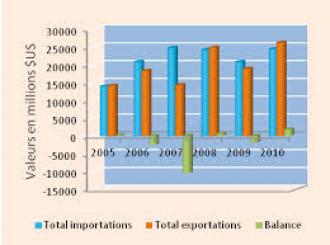
Abidjan, 16 September 2015 (ECA) - The Focal Points for the United Nations Economic Commission for Africa (UNECA) from Capo Verde, Côte d’Ivoire, Ghana, Gambia, Guinea, Niger, Nigeria and Senegal, countries for which the development of profiles is programmed for 2014-2015 as well as the Focal Points from the Economic Community of West African States (ECOWAS), from the West African Economic and Monetary Union (WAEMU) and from the Economic and Statistical Observatory for Sub-Saharan Africa (AFRISTAT), closed their meeting in Abidjan (Côte d’Ivoire) with the Sub-Regional Office for West Africa of the Economic Commission for Africa.
In their respective presentations, countries reviewed the changes and institutional organization of their statistical systems as well as the systems of production and dissemination of data currently in effect, with a special emphasis on the different actors involved, the nature of their operational relationships and outlooks. The economic and social situation in 2014 and the outlook for 2015 and 2016 were also discussed.
As for ECOWAS, WAEMU and AFRISTAT, they presented their respective mechanisms of collaboration with countries in terms of exchanges and transmission of data and the institutional and incentive systems set up as well as the constraints encountered.
On its part, the ECA presented the concept note for the country profiles, through the context, objectives, format and content, the calendar for production and the model of data required. Moreover, the ECA underlined the need for close collaboration with the Member states and the Regional Economic Communities to ensure the production of quality country profiles, based mainly on national source data that conforms to international norms and standards.
Discussions with the Focal Points revealed difficulties in the explicit definition of indicators as well as in the coordination at the national level with the different actors involved in the system of production and dissemination of data. In this regard, they underlined the imbalance of the ratio between the professionals in statistics and the total workforce of the National Statistical Institutes, the low level of resources allocated to the national statistical systems, the difficulties in institutional anchorage and the operationalization of the coordination and steering bodies.
At the end of the meeting, the participants formulated recommendations and commitments. For the ECA, they recommended, among other things, a regular exchange of information with the Focal Points on the production of country profiles in order to enable best practices to be shared in the country, the dissemination and restoration at the national and regional levels the country profiles developed; the provision of technical assistance for the strengthening of the production and dissemination of data and advocacy with ministers in charge of the economy and finances and those in charge of planning and development to facilitate the mission of the Focal Points, notably in the collection, compilation and transmission of data to the ECA.
With regards to Member states, it was recommended notably to respond within the prescribed deadline to the requests for data by the ECA, to share regularly with the ECA the constraints and needs in terms of capacity strengthening, to participate regularly in the meetings organized by the ECA in the framework of the country profiles and to work towards setting up a centralized/coordinated statistical system in order to avoid multiple sources for an indicator for the same country.
As for the Regional Economic Communities, the participants recommended that they set up an institutional mechanism for sharing data with the ECA, strengthen collaboration with the ECA in the implementation of their statistical activities and programmes, participate regularly in the meetings organized by the ECA in the framework of the development of the country profiles and strengthen support for countries in upgrading their norms and standards in the production and dissemination of statistical data in order to improve the comparability of national data.